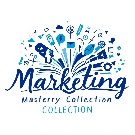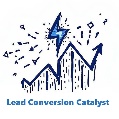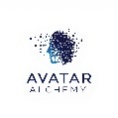
How recognizing the mental marathon of modern shopping can transform your marketing—backed by neuroscience
Picture this: Sarah stares at her laptop screen, 47 browser tabs open, comparing mattress reviews. It's been three weeks. She's read every review, watched countless YouTube videos, and even made a spreadsheet. Yet she still hasn't bought anything.
Sound familiar? That's emotional labor in action—and it's killing your conversions.
Here's what most marketers miss: every purchase decision is a mental marathon. And your customers are running it alone, uphill, often in the dark.
Neuroscientists hooked people up to brain scanners while they shopped online. The results? Their brains lit up like Times Square on New Year's Eve¹. The same regions that activate during complex problem-solving and emotional regulation were working overtime. Translation: shopping isn't just thinking—it's feeling, and it's exhausting.
Dr. Kathleen Vohs's groundbreaking research proved it: after making just a few choices, people's brains literally run out of juice². They make worse decisions. They give up easier. They abandon their carts and never come back.
1. Information Overload Hell
Your customers spend exactly 13 seconds on a product page before their brains wave the white flag³. Thirteen. Seconds. That's less time than it takes to tie your shoes, yet we expect them to process specifications, reviews, prices, and shipping options.
2. The "What Will People Think?" Panic
Brain scans show that when people shop, they're not just thinking about the product. They're managing their entire identity⁴. Will my friends judge this purchase? Does this make me look cheap? Smart? Trendy? Behind the times? It's exhausting, and it happens with every single purchase.
3. Buyer's Remorse Before They Even Buy
The fear of making the wrong choice activates the same brain regions as physical pain⁵. Yes, you read that right. For your customers, the wrong purchase feels like actual pain. No wonder they hesitate.
4. Death by a Thousand Options
Remember when "more choice" was supposed to be better? Barry Schwartz's research destroyed that myth⁶. Too many options paralyze customers. Their stress hormones spike. Their brains shut down. They leave.
Warby Parker Cracked the Code
They saw the emotional labor of buying glasses online and said, "Let's fix that." Their home try-on program doesn't just ship glasses—it ships peace of mind. Result? 50% higher conversion rates than competitors⁷.
The lesson: Remove the fear of getting it wrong.
Amazon's Secret Weapon Isn't Fast Shipping
It's easy returns. When customers know they can fix a mistake, their anxiety plummets. Their brains relax. They buy more. Amazon's neuroscience-backed return policy drives billions in additional revenue⁸.
The lesson: Make mistakes painless.
Glossier Built a $1.2 Billion Emotional Support System
Instead of hiding the struggle, they celebrated it. Their community shares decision journeys, turning individual emotional labor into collective support. Growth: 600% in five years⁹.
The lesson: Turn struggle into connection.
1. Acknowledge the Struggle (Seriously)
Stop pretending decisions are easy. Try copy like:
A/B tests show this approach increases conversions by 23%¹⁰. Why? Because feeling understood reduces anxiety.
2. Curate Like Your Customers' Sanity Depends on It
Netflix doesn't show you every movie—they show you 40. Their algorithm reduces choice anxiety and decision time by 60%¹¹. You can do the same:
3. Drip, Don't Drown
Show information in stages. Start simple. Add detail as they engage. Research shows this approach literally reduces cortisol (stress hormone) levels¹².
4. Share the Journey, Not Just the Destination
Instead of "Jim loves our product!" try "Jim spent two weeks researching before choosing us. Here's what tipped the scales..." It validates their process and provides a roadmap.
5. Build Emotional Off-Ramps
Give customers permission to pause:

Forget vanity metrics. Track emotional labor indicators:
By 2025, AR shopping will let customers "try" products virtually, slashing emotional labor¹³. AI will predict and prevent decision fatigue in real-time. But the principle remains: respect the mental work your customers do.
Your customers aren't just choosing products. They're managing identities, relationships, anxieties, and dreams. Every purchase is a mental marathon.
The question isn't whether you'll acknowledge this emotional labor. It's whether you'll do it before your competitors do.
Because the brands that win tomorrow are the ones that understand a simple truth today:
When you lighten the mental load, you don't just make sales. You make fans.
Ready to transform your customer experience? Start by auditing your customer journey for emotional labor hotspots. Your customers—and your conversion rates—will thank you.
¹ Sanfey, A. G., et al. (2003). "The Neural Basis of Economic Decision-Making in the Ultimatum Game." Science, 300(5626), 1755-1758.
² Vohs, K. D., et al. (2008). "Making Choices Impairs Subsequent Self-Control." Journal of Personality and Social Psychology, 94(5), 883-898.
³ Nielsen Norman Group. (2018). "How People Read on the Web: The Eyetracking Evidence." NN/g Reports.
⁴ Deppe, M., et al. (2005). "Nonlinear Responses Within the Medial Prefrontal Cortex Reveal When Specific Implicit Information Influences Economic Decision Making." Journal of Neuroimaging, 15(2), 171-182.
⁵ Coricelli, G., et al. (2005). "Regret and its Avoidance: A Neuroimaging Study of Choice Behavior." Nature Neuroscience, 8(9), 1255-1262.
⁶ Schwartz, B. (2004). The Paradox of Choice: Why More Is Less. Harper Perennial.
⁷ Warby Parker Impact Report. (2023). "Customer Satisfaction and Conversion Metrics." Corporate Communications.
⁸ Janakiraman, N., Syrdal, H. A., & Freling, R. (2016). "The Effect of Return Policy Leniency on Consumer Purchase and Return Decisions." Journal of Retailing, 92(2), 226-235.
⁹ Glossier Inc. (2023). "Building Beauty Communities: A Five-Year Retrospective." Annual Report.
¹⁰ Shu, S. B., & Gneezy, A. (2010). "Procrastination of Enjoyable Experiences." Journal of Marketing Research, 47(5), 933-944.
¹¹ Gomez-Uribe, C. A., & Hunt, N. (2016). "The Netflix Recommender System: Algorithms, Business Value, and Innovation." ACM Transactions on Management Information Systems, 6(4), 1-19.
¹² Payne, J. W., Bettman, J. R., & Johnson, E. J. (1993). The Adaptive Decision Maker. Cambridge University Press.
¹³ Gartner Research. (2023). "Predicting Consumer Technology Adoption Rates." Technology Trends Report.
![]() NeuroMarket
NeuroMarket
Leap Ahead of the Competition with Science Based and AI Marketing tools!
https://bp.neuromarket.co/![]() Wishcraft.dev
Wishcraft.dev
Dream It. Build It. Launch It. Turn Your Vision into Digital Reality
https://wishcraft.dev/  Marketing Mastery Collection: 50 Cutting-Edge Strategic Insights
Marketing Mastery Collection: 50 Cutting-Edge Strategic Insights
Avoid throwing darts and wasting marketing dollars, dive into science based cutting-edge strategies that blend psychological understanding and strategic thinking for compelling marketing narratives that drive meaningful engagement and measurable results. https://mmc.neuromarket.co MindMarket Academy - The Science of Marketing and Selling, Simplified
MindMarket Academy - The Science of Marketing and Selling, Simplified
https://mindmarketacademy.com/
 Lead Conversion Catalyst − Transform Your Email Strategy with AI-Powered Personalization!
Lead Conversion Catalyst − Transform Your Email Strategy with AI-Powered Personalization!
https://leads.neuromarket.co/
 AI Audio Alchemy − Simplify your podcast episode creation, audio book narration, or voice overs while lowering cost.
AI Audio Alchemy − Simplify your podcast episode creation, audio book narration, or voice overs while lowering cost.
https://aaa.neuromarket.co
 Avatar Alchemy − Simplify your podcast episode creation, audio book narration, or voice overs while lowering cost.
Avatar Alchemy − Simplify your podcast episode creation, audio book narration, or voice overs while lowering cost.
https://aaa.neuromarket.co
© 2025 All rights reserved
Sawatch Solutions LLC
https://cms.sawatchsolutions.com/